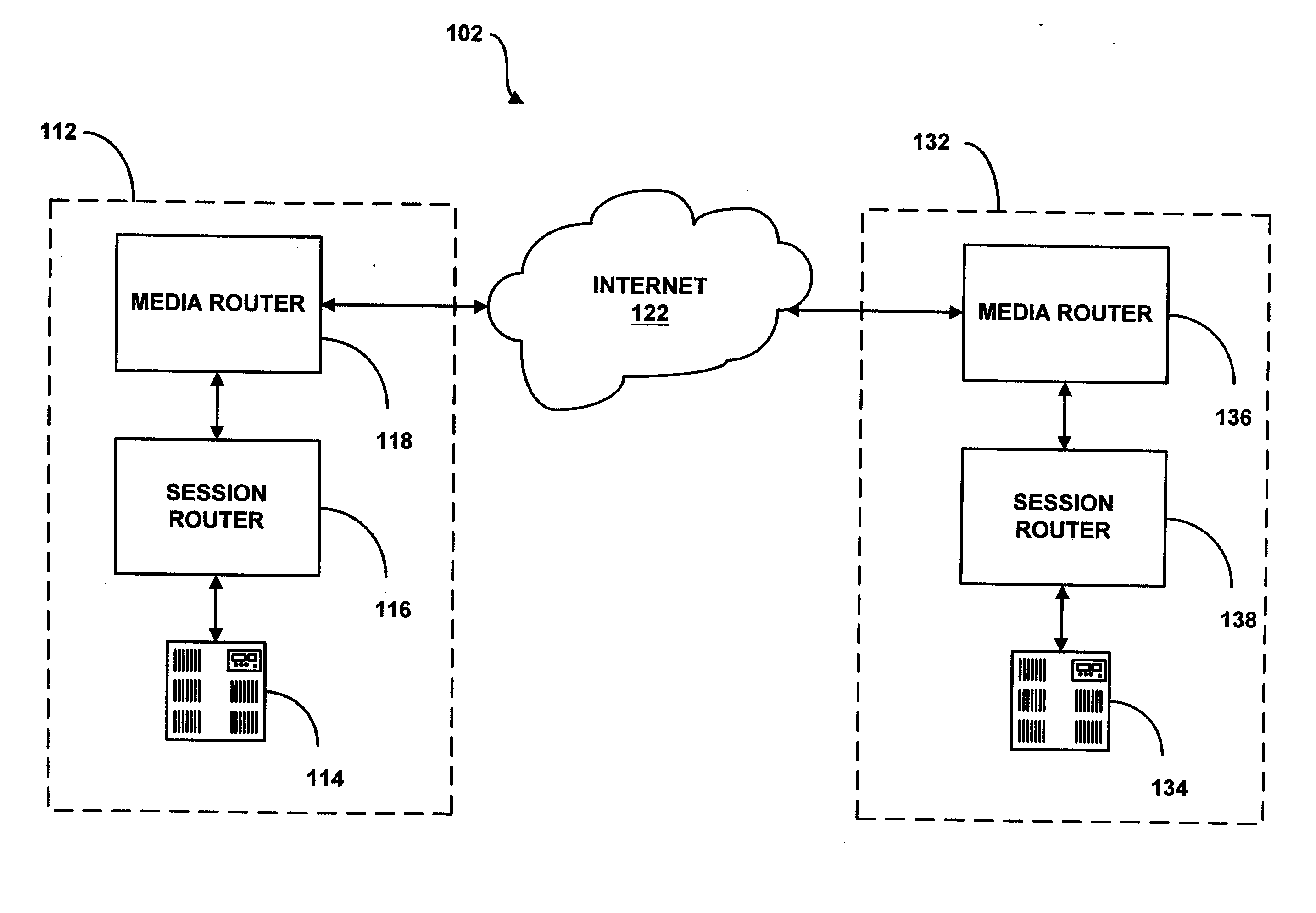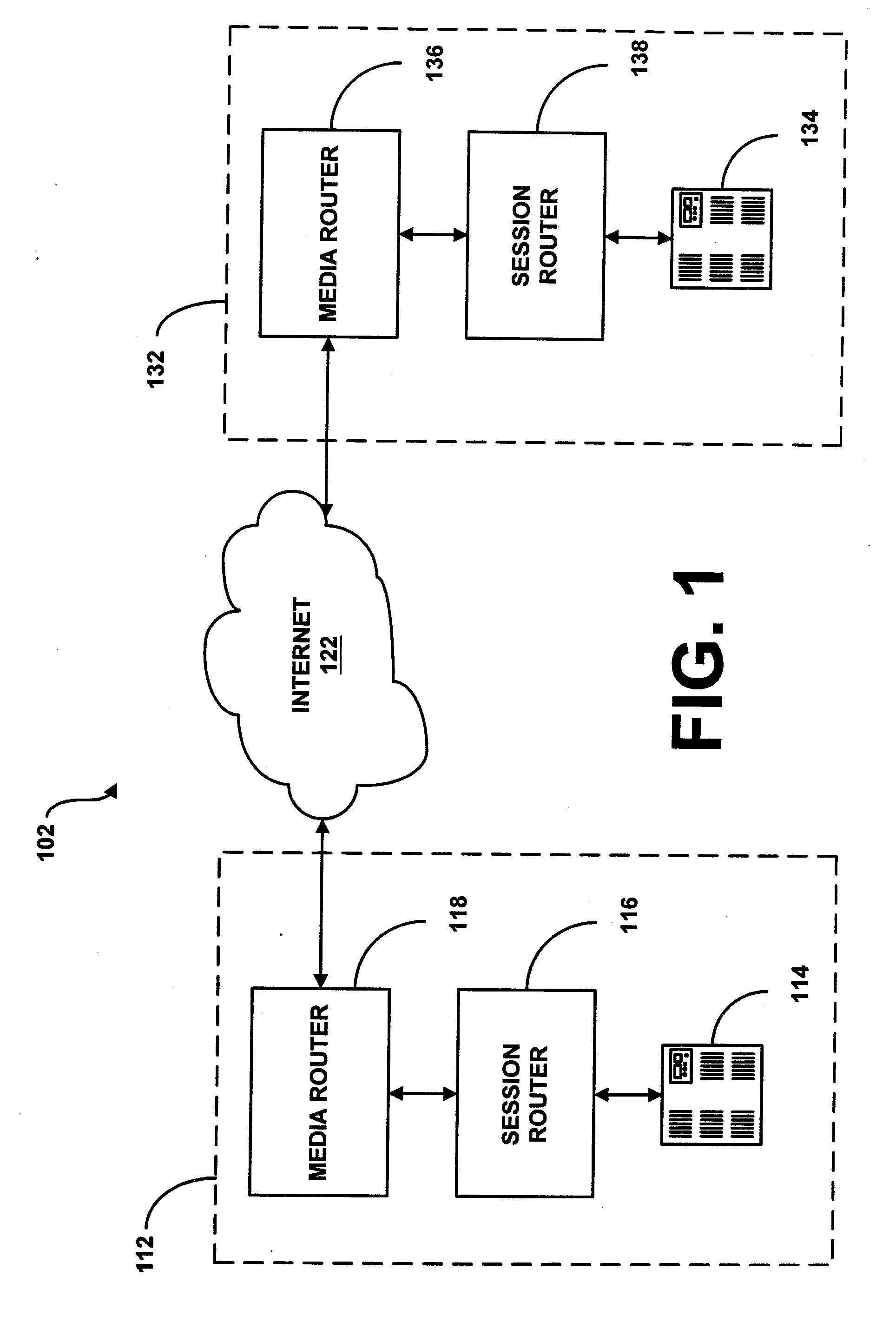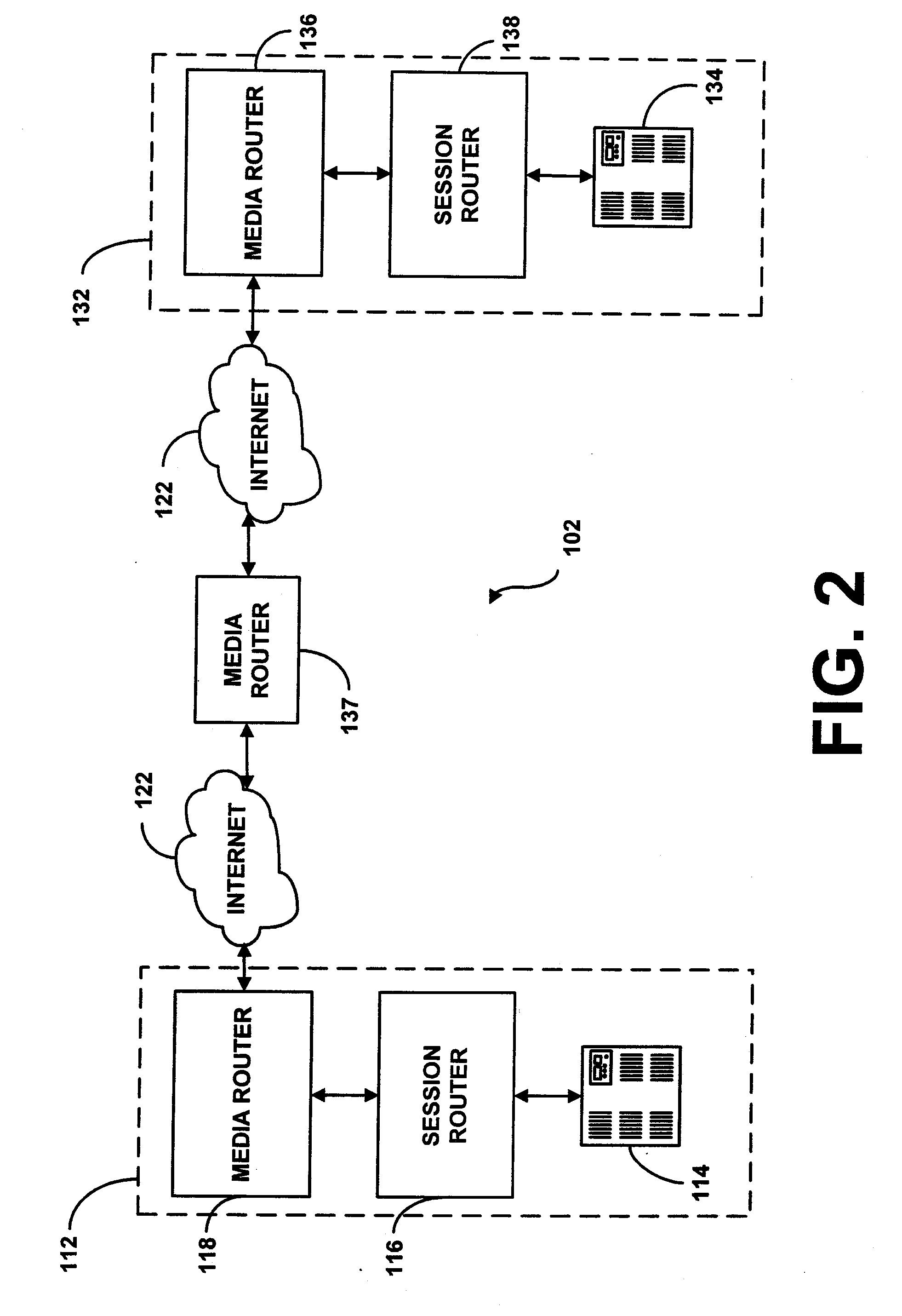System and Method for Determining Flow Quality Statistics for Real-Time Transport Protocol Data Flows
a real-time transport protocol and data flow technology, applied in the field of real-time multimedia flow, can solve the problems of not being able to assist in finding a proper transportation route, not being able to route an actual communication session on anything, and not being able to find a universal registry on the intern
- Summary
- Abstract
- Description
- Claims
- Application Information
AI Technical Summary
Benefits of technology
Problems solved by technology
Method used
Image
Examples
example
Multi-Media Router Command
[0086] Inbound Packet
Primary
[0087] source address 129.0.0.1:3000 (IP address and Port)
[0088] destination address 130.0.0.1:5000
Secondary
[0089] source address 128.0.0.1:1500
[0090] destination address 126.0.0.2:1400
[0091] Outbound Packet
Primary
[0092] source address 131.0.0.1:3000
[0093] destination address 132.0.0.2:4000
Secondary
[0094] source address 133.0.0.1:1000
[0095] destination address 134.0.0.1:7000
[0096] It should be noted that in accordance with the above provided example, packets received from either the primary or secondary address pairs are assumed as part of a single RTP data packet flow. Thus, packets arriving at a link that have, either the primary source and destination pair, or the secondary source and destination pair are translated. The translation is to either the primary or secondary outbound address. Specifically, if an RTP data packet arrives with a source address of 129.0.0.1:3000 and a destination address of 130.0.0....
PUM
 Login to View More
Login to View More Abstract
Description
Claims
Application Information
 Login to View More
Login to View More - R&D
- Intellectual Property
- Life Sciences
- Materials
- Tech Scout
- Unparalleled Data Quality
- Higher Quality Content
- 60% Fewer Hallucinations
Browse by: Latest US Patents, China's latest patents, Technical Efficacy Thesaurus, Application Domain, Technology Topic, Popular Technical Reports.
© 2025 PatSnap. All rights reserved.Legal|Privacy policy|Modern Slavery Act Transparency Statement|Sitemap|About US| Contact US: help@patsnap.com



